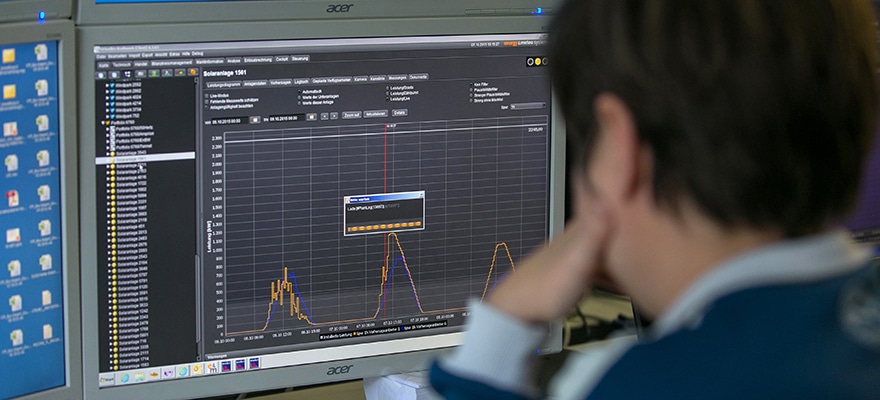
Scale of Justice: Source CFTC
The U.S. regulatory agency, the Commodity Futures Trading Commission (CFTC), has filed a civil enforcement action charging Direct Investment Products, Inc. (DIP) and its principal Alexander Glytenko of Carlsbad, California, with fraudulent solicitations, misappropriations and misrepresentations - in connection with operating a regulated commodity pool.
According to the press release posted on the CFTC website today, the complaint was dated December 5, 2013 and filed in the United States Court Southern District of California in the jurisdiction of the defendants operations, and charges DIP, and its principal Glytenko, with misappropriating at least $464,000 of the firm's pool capital (in November 2009).
Allegations in the complaint included the soliciting of $3.9 million from approximately 761 individuals in a fraudulent manner, and included the trading of futures and options on commodities, indices, currencies, treasury bonds and notes, and metals on behalf of pool customers.
The DIP operated pool was known as DIP Capital Partners, and its investors were noted as residing in Russia and various former republics of the former Soviet Union, according to the compliant docketed as Case No. '13CV2887 OMS NLS and which can be found in full on the CFTC website.
Precluded NFA Action Uncovering Failure to Register Funds
DIP has been registered with the CFTC as a Commodity Trading Advisor (CTA) and as a Commodity Pool Operator (CPO) since April 2007, as confirmed on the National Futures Associations website, including Glytenko's registration as an Associated Person (AP) of DIP since April 2007, and registrations for another registered entity (ICM as noted below).
The NFA has previously taken emergency action and frozen assets after issuing a Member Responsibility Action(MRA) against DIP and Glytenko's other regulated entity, Institutional Capital Management (ICM) on January 21, 2010.
ICM operated a 4.7 exempt pool called Institutional Capital Fund, LLC ('IC Fund"). On January 12,2010 NFA received a complaint regarding Glytenko and DIP from a customer in Russia, who described herself as a shareholder of DIP.
According to a case document posted on the NFA website, this individual told NFA that she had invested with Glytenko and that she was concerned about her investment because of Glytenko's failure to keep her informed as to the status of her investment, and her inability to communicate with Glytenko about her investment due to Glytenko's failure to return phone calls or reply to e-mail inquiries.
This individual also indicated that Glytenko operated several pools which were not listed with NFA, including to the DI Growth Fund (DG Fund). These events, among other related actions in the NFA case document helped lay the groundwork for the CFTC filed compliant, noted above as the case later unfolded.
CFTC Allegations Point to Fraud Via Inappropriate Track Records
The CFTC Complaint alleges that, from approximately 2005 until approximately 2010, the Defendants, either directly or through their agents, knowingly misrepresented the Pool’s performance history to both prospective and actual participants by:
a) Presenting profitable performance figures for several of the Pool’s funds for years in which they knew the Pool did not exist.
b) Presenting hypothetical trading performance without labeling it as such.
c) Presenting at least two years of profitable performance results for one of the Pool’s funds when, according to the complaint, that fund had experienced losses during those years.
Inaccurate Performance Alleged in Yearly Reported Returns
Specifically, the CFTC Complaint alleges, among other things, that in the course of soliciting prospective participants for the Pool, the Defendants fraudulently claimed that the Pool made annual profits from 2003 through 2008 ranging from 12.60% to 47.20%, and that two of the Pool’s individual funds made annual profits from 2004 through 2008, ranging from 12.01% to 41.12% and 10.16% to 49.79%, respectively.
The Complaint also alleges that the Defendants made similar fraudulent profit claims in statements provided to actual participants, with some showing historical profits going back as far as 2002.
According to the Complaint, the Pool did not even exist until 2005, the profit figures claimed by the Defendants were not reflective of actual trading, but were based on the hypothetical performance of the Defendant’s proprietary trading strategy, and certified financial statements of one of the Pool’s funds showed actual losses in 2007 and 2008.
Glytenko Allegedly Took a Dip into Customer funds
The Complaint further alleges that in 2009, at a time when the Defendants had imposed a freeze on the withdrawal of participants’ funds as a result of substantial losses incurred by the Pool, Glytenko used participants’ funds to take a loan of $464,000 from DIP for himself. This loan has never been repaid, according to the Complaint.
If the court awards restitution for the alleged $464,000 that has been referenced as unpaid to investors in the DIP operated pool, along with any penalties or monetary fines against the firm and its principal, it's likely that in its continuing litigation, the CFTC will continue to seeks civil monetary penalties, restitution, disgorgement of ill-gotten gains, trading and registration bans, and a permanent injunction against further violations of the federal commodities laws, based on such charges as noted above.
According to a public Linkedin profile for Glytenko matching his various positions held at related companies, a description includes an academic position that refers to a Ph.D in Physics having been obtained, and subsequently working for 10 years as scientist at the Scientific Research Technological Institute in Russia:
"Investigated interaction of highly intensive radiation with solid state surface. Created mathematical models describing high velocity processes inside of solid states under influence of laser beams. Described the process of generating amorphous layers on the surface of metals. Published more than 30 scientific articles."
Forex Magnates' reporters contacted the CFTC whose staff was unable to comment on any ongoing litigation related to this complaint (as per policy) that isn't already public. CFTC staff did point out its "fraud-advisories" publications for both Forex and CPO related investments, that have been published in an effort to increase investor awareness of early signs of potential red flags that could reveal questionable investment opportunities.





















